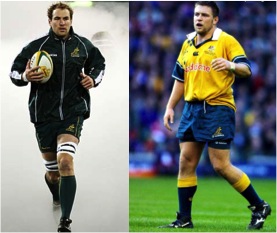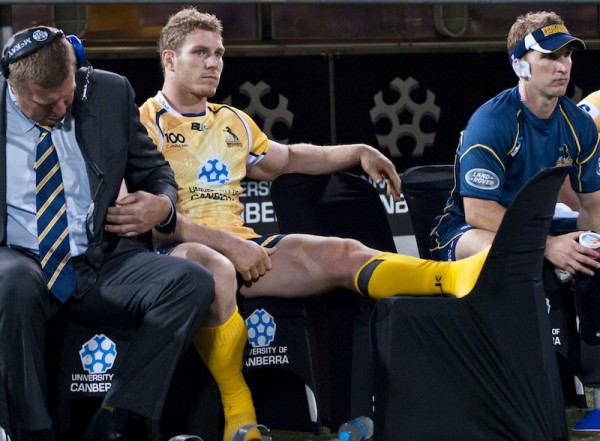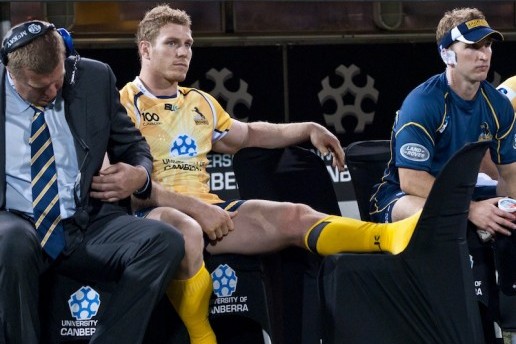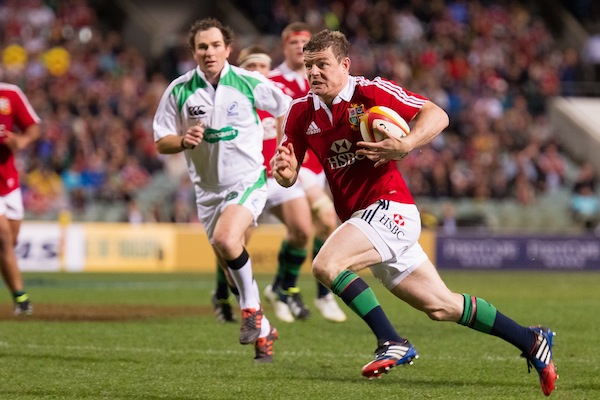 There has been much speculation as to why the Wallabies have been under-performing recently and it is almost impossible to narrow it down to one sole factor. However, in Green and Gold Rugby’s most recent podcast several interesting points were raised by former Wallabies Ben Darwin and Rocky Elsom.
There has been much speculation as to why the Wallabies have been under-performing recently and it is almost impossible to narrow it down to one sole factor. However, in Green and Gold Rugby’s most recent podcast several interesting points were raised by former Wallabies Ben Darwin and Rocky Elsom.
Relationships and combinations
Ben Darwin has not only raised a theory but built a business around quantifying player relationships and combinations and how they can be vital to a team’s success.
For example, at the beginning of the year the Highlanders were considered one of the favourites to win the Super Rugby competition, and with superstars including Brad Thorn, Ma’a Nonu, Aaron Smith, Tamati Ellison, Ben Smith, Hosea Gear and Tony Woodcock it’s hard to believe they came 14th at the end of the season.
It was a classic case of how a team of champions doesn’t necessarily translate into a champion team. Their lack of familiarity with each other was pointed out by Darwin after he stated that players in the back line had “had more experience playing for the Hurricanes than the Highlanders.”
The recent lack of success for the Barbarians derives from the same principle. Players selected in the Barbarians often have limited preparation and relationships with others in the team. They then have to face those who have been playing with each other for months and perhaps years.
Warren Gatland recognised this in the British and Irish Lions tour. He built his team around combinations and central positions occupied by Welshmen, even dropping Brian O’Driscoll for the final Test, which proved a successful, if unpopular, tactic.
Due to the endless depth of talent in New Zealand, they are able to seamlessly “rotate guys in and maintain a large amount of experience in their side and still be successful.”
This level of consistency is demonstrated through the midfield partnership of Ma’a Nonu and Conrad Smith who have a 49-Test partnership compared to Christian Leali’ifano and Adam Ashley-Cooper’s partnership of 7 Tests. In total the All Blacks had over 300 more Test caps than the Australian in Bledisloe I this year.
McKenzie has identified that the Wallabies must be build up combinations and that there must be limited ‘chopping and changing’ which has contributed to him only using 27 players in his first 4 Tests in charge whilst New Zealand have used 32 different players in as many Tests.
There is, therefore, an argument to say Australia is in a phase of rebuilding rather then in a period of crisis. If combinations can remain consistent over the next two years, they should look good heading into the World Cup in 2015.
Conditioning and performance programs
Elsom alluded to Australia’s conditioning and “Far inferior performance program” as being the forefront to Australia’s problems. The fact the Wallabies don’t have “the best players available” due to injury and fitness is a significant disadvantage.
Elsom implied that the difficulties Australian Rugby is currently facing were established in the Deans era by stating the last five years had been “stagnant” and that McKenzie is now suffering the consequences. He also suggested that the integrated system the All Blacks have in place where their principles are supported at provincial level was an essential factor to their success.

“They control it all centrally … as far as I can gather they have a pretty good grip on what goes on in the provinces because you can have a program for the All Blacks if you like but if that’s not getting supported at the provincial level then you lose an enormous part of the year and it’s important to have that control and like I said if you get good people in there at the Wallabies too but they need to be supported by other staff, say in the Wallabies staff but also in the provinces by not necessarily doing exactly what the Wallabies want but having the same kind of principles in relation to what’s going to be the best to get the most out of them” said Elsom.
“The difference between a really good program and a program that doesn’t function well is the number of times you do things that help you perform will and they get disrupted all the time which is unavoidable but it is the collection of all the times you’ve actually improved yourself physically that add up and I think that’s what I’m getting at with Link. He’s wearing the affects of us having very few of those days in the past 5 or 6 years”.
“[It is] difficult to be consistent or successful when you don’t have depth. For us, we have less depth than New Zealand and South Africa and a higher injury rate. It’ll take time – there’s no quick fix”
Where to now?
McKenzie has had success at both the Waratahs and Reds by creating building up relationships and key combinations between players – as with Will Genia and Quade Cooper – and by having good performance programs which have allowed him to field the strongest team possible. Of course it is not “quick fix” but as I’m sure he’s attempting to do at the moment, McKenzie must rectify these issues if Australia are to have any chance of being a successful team in the future.
Listen to interviews for yourself



